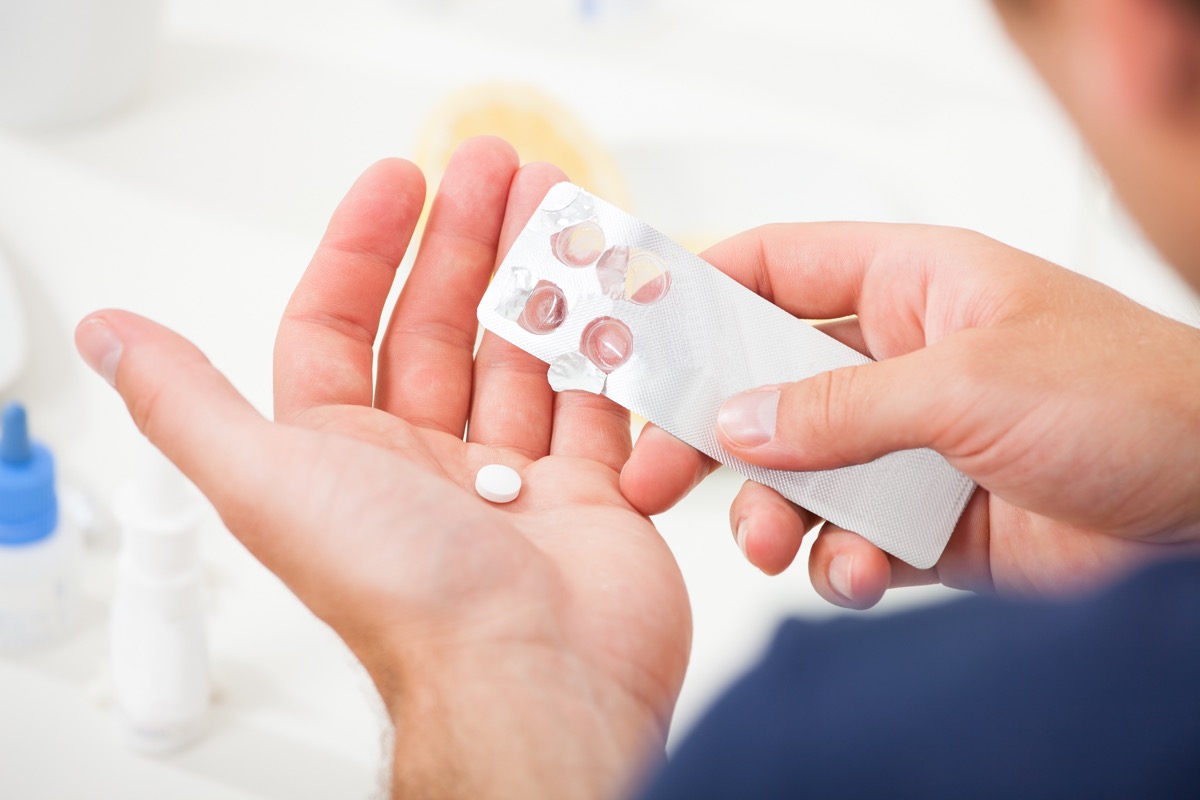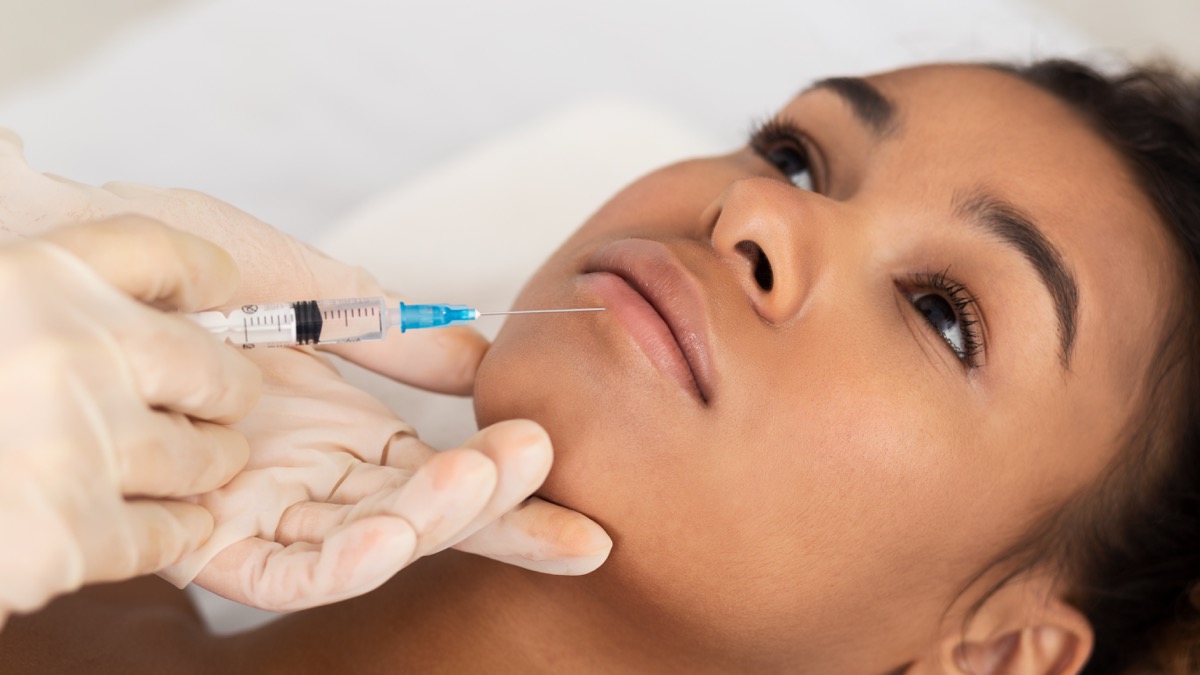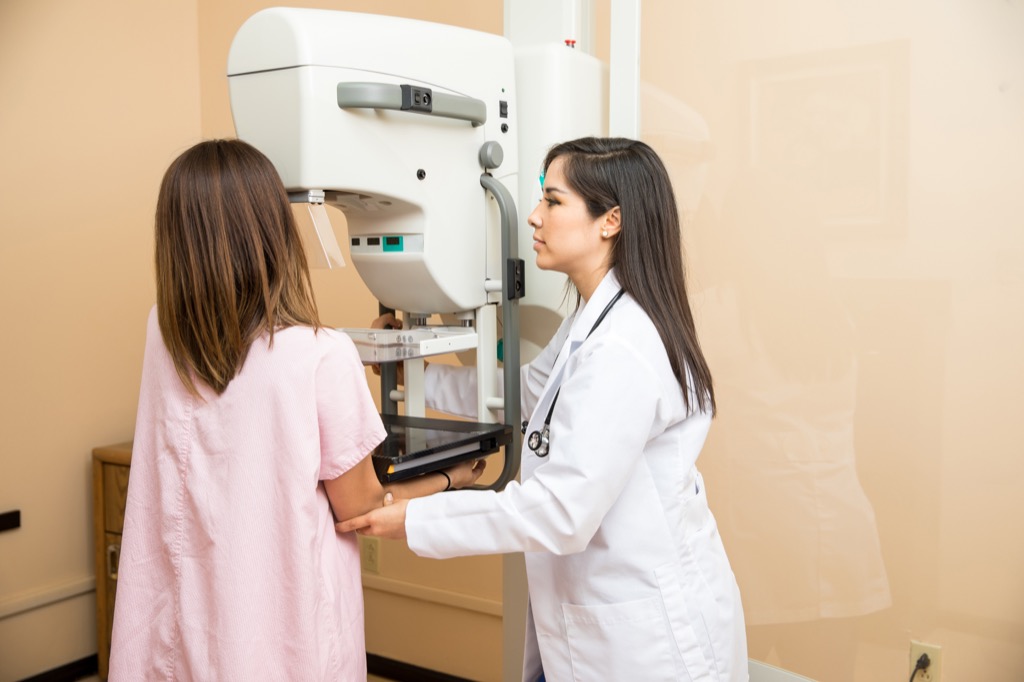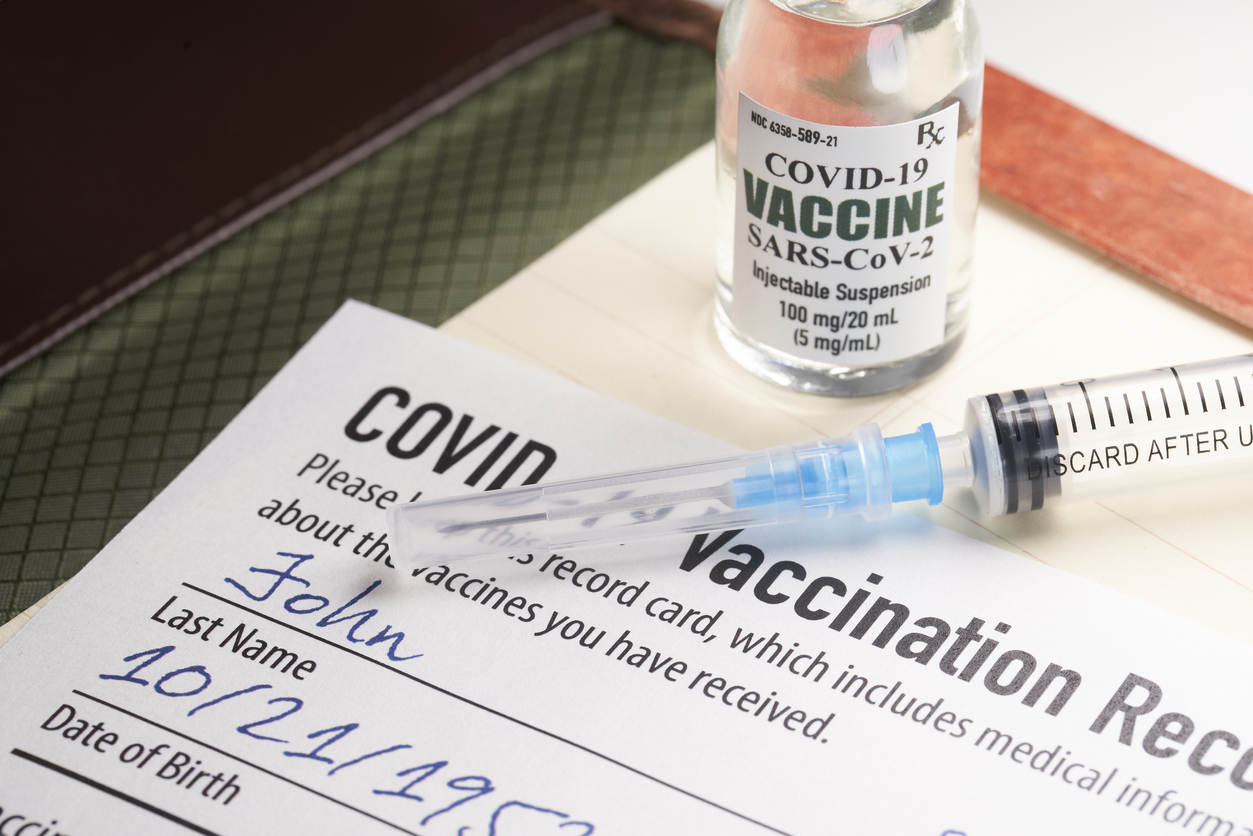Before heading out to get your shot, be sure to have a meal. “You want to follow your normal routine of making sure you’ve had something in your tummy,” UCHealth’s Medical Director of Infection Prevention Michelle Barron, MD, told NBC affiliate 9News. The experts at Nebraska Medicine add that proper nutrition may be able to help combat any dizziness or lightheadedness that can occur in those nervous about getting the jab. Another thing you should be sure to do before sitting down for your shot is hydrate. UCHealth and Nebraska Medicine both note the importance of drinking plenty of water before your vaccine. While being hydrated is important every day, it’s especially key on the day of your vaccine to prevent dehydration and keep you feeling your best before and after the shot. “Staying hydrated before the vaccine will contribute to your well-being,” the experts at UCHealth point out. These two tips are some of the easiest ways to make sure your vaccination goes smoothly. But to see what you shouldn’t do before and after your shot, read on. And for more COVID news delivered right to your inbox, sign up for our daily newsletter. During a Feb. 25 interview with CBSN, White House COVID adviser Anthony Fauci, MD, said people should not take pain relievers that “suppress immunological response” before getting vaccinated. The Centers for Disease Control and Prevention (CDC) also echoed this advice in their vaccination guidelines. “It is not recommended you take these medicines [ibuprofen, aspirin, antihistamines, or acetaminophen] before vaccination for the purpose of trying to prevent side effects, because it is not known how these medications may impact how well the vaccine works,” reads the CDC’s website. However, you are clear to take pain relievers after your vaccination if you experience any side effects. To see if you need to talk to your doctor before the shot, check out If You Take This Common Medication, Talk to a Doctor Before Your Vaccine. Experts say it’s best to hold off on getting any facial injections until after your COVID vaccine since studies have shown that they could cause an adverse reaction. A report from the U.S. Food and Drug Administration (FDA), presented to the Vaccines and Related Biological Products Advisory Committee (VRBPAC), documented a few occasions in which vaccine recipients who had gotten cosmetic filler injected into their cheeks or lips between two weeks to six months prior to their vaccination experienced swelling after their shot. To see what you should avoid after getting vaccinated, check out Dr. Fauci Says Don’t Do This After Your First COVID Shot.ae0fcc31ae342fd3a1346ebb1f342fcb Swollen lymph nodes under your arm are a possible immune response from the COVID vaccine, and are nothing to be worried about. But the Society of Breast Imaging (SBI) cautioned that this side effect could mimic a lump that would be indicative of breast cancer, potentially raising unnecessary concern. SBI suggests people schedule their regular mammogram appointment “four to six weeks following the second dose of a COVID-19 vaccination” unless they need urgent medical attention. And to see what you should be ready for after your second shot, check out Doctors Are Warning You to “Be Prepared” for This After Your Second Dose. As exciting as it is to finally receive your shot, experts advise against posting a picture of your immunization card online. The Better Business Bureau (BBB) warned that the information on your card—which includes your full name, date of birth, and where you received the dose—can be used to steal your identity. The BBB also noted that scammers in the U.K. have been selling counterfeit copies of immunization cards, so that’s another reason to keep your card to yourself. And for one activity to avoid before and after getting vaccinated, check out The CDC Says Don’t Do This Within 2 Weeks of Your COVID Vaccine.




